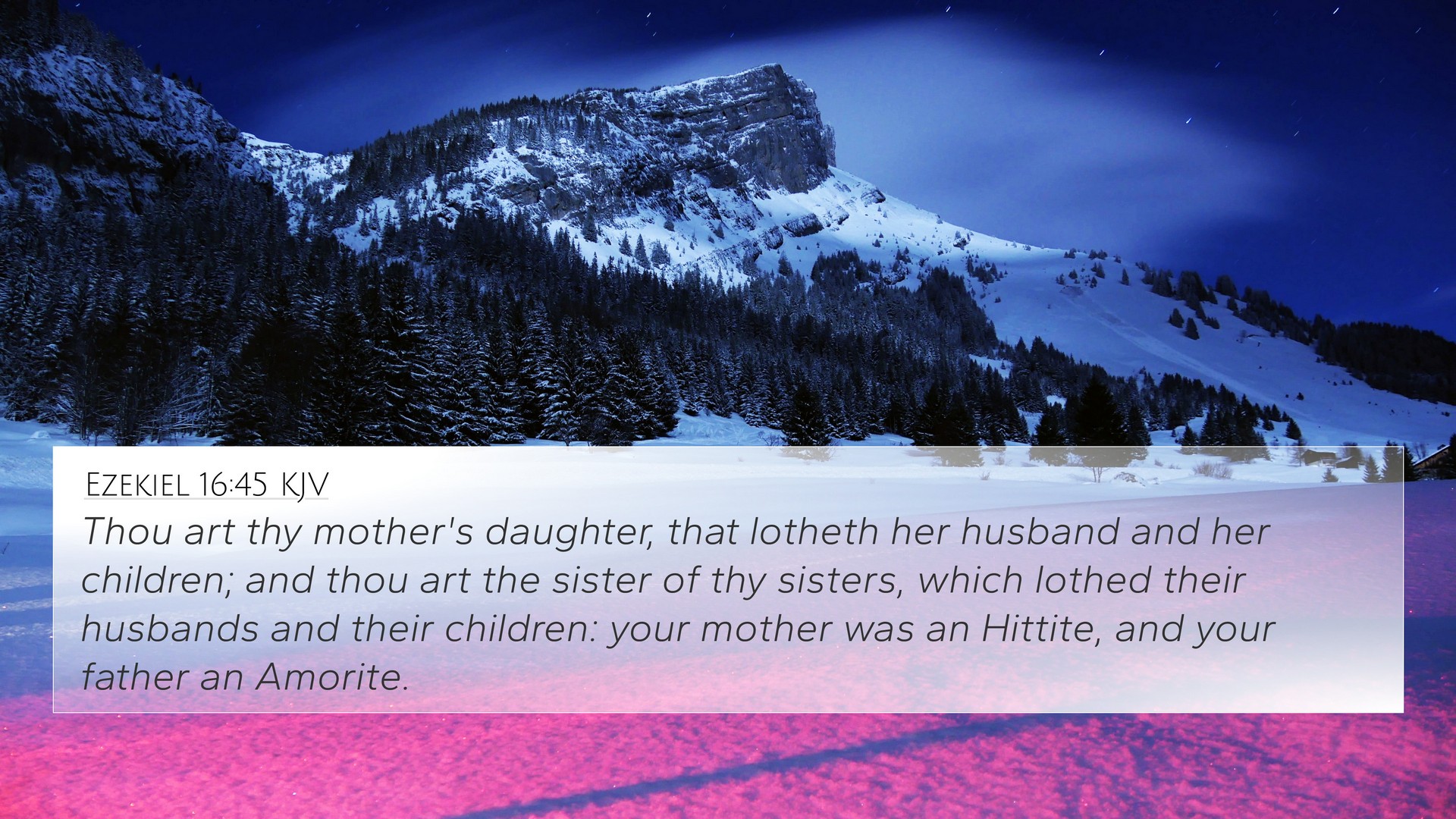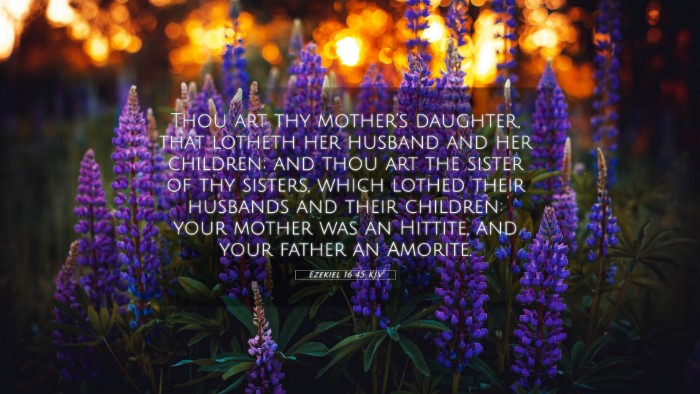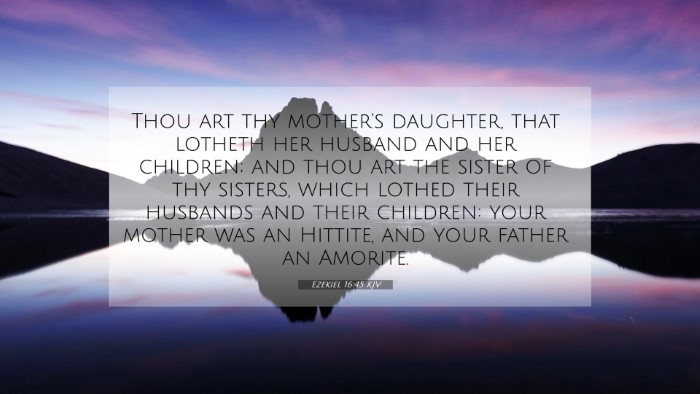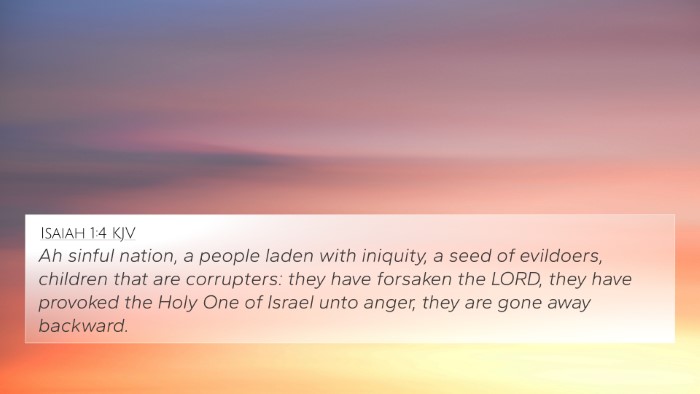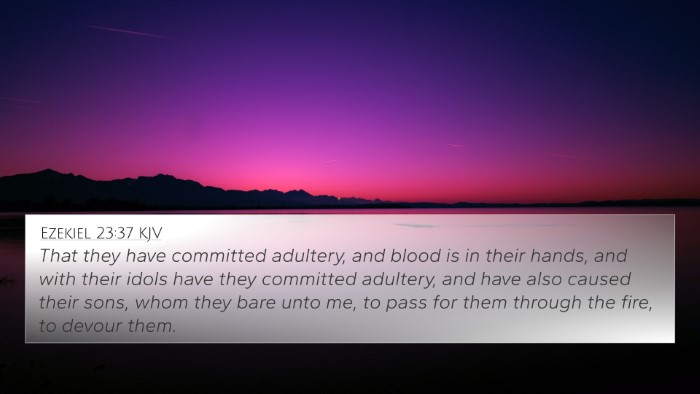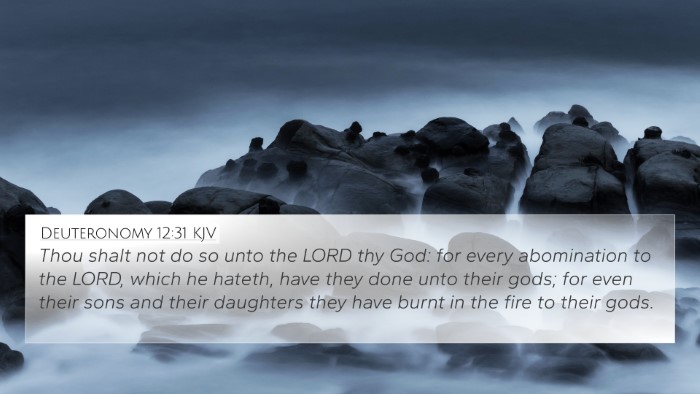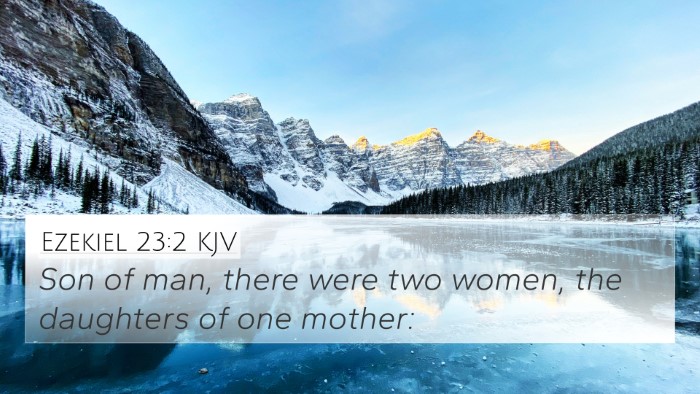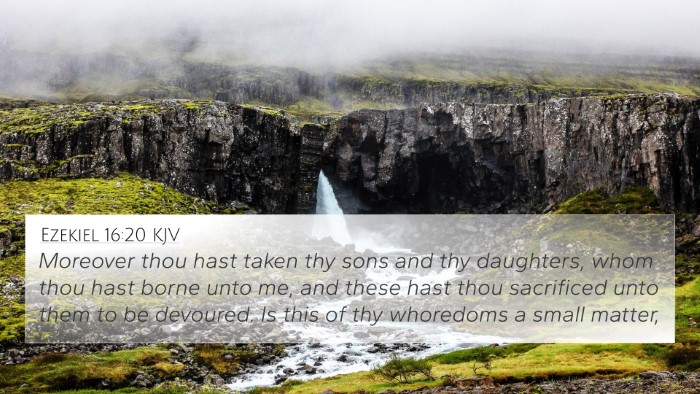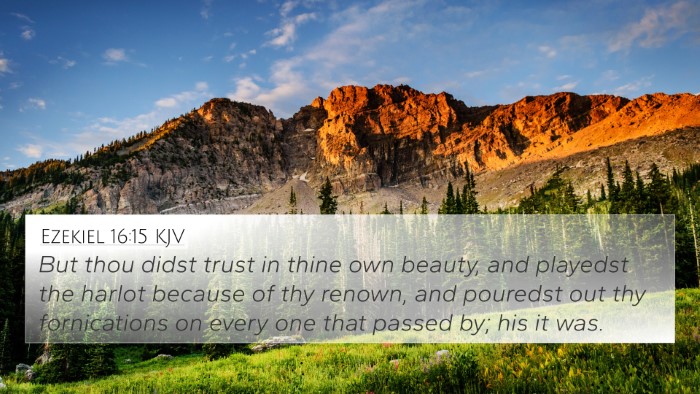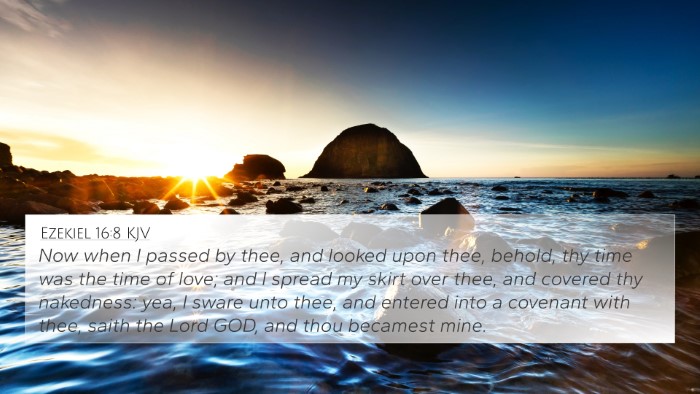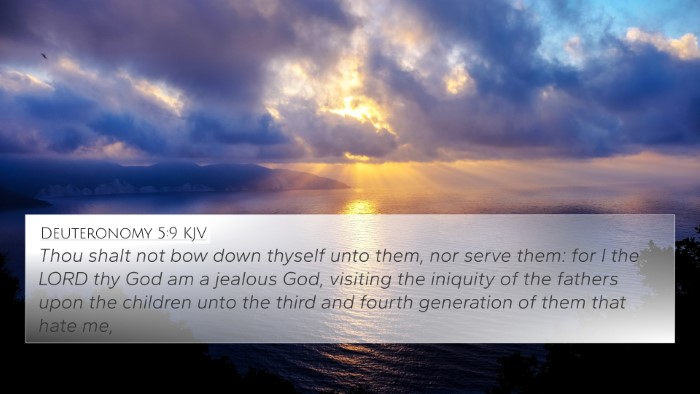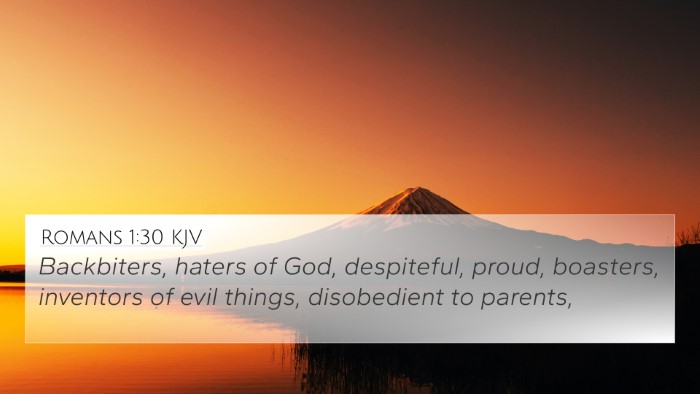Ezekiel 16:45: Summary and Interpretation
Ezekiel 16:45 states, “Thou art thy mother’s daughter, that lotheth her husband and her children; and thou art the sister of thy sisters, which lothed their husbands and their children: your mother was an Hittite, and your father an Amorite.” This verse is a culmination of profound themes that depict the collective identity of Israel while emphasizing their unfaithfulness. Below is a detailed interpretation of this verse, drawing insights from various public domain commentaries.
Understanding Ezekiel 16:45
Contextual Background
In Ezekiel 16, the Lord uses the metaphor of a marriage to convey His covenant relationship with Israel. The chapter portrays Israel as an unfaithful wife who has abandoned her husband, Yahweh, and pursued other lovers, which signifies idolatry and infidelity in their covenant relationship.
Commentary Insights
- Matthew Henry: Henry highlights that this verse symbolizes Israel’s lineage and moral failures. By referring to their mother and sisters, Ezekiel emphasizes their shared sinful nature and heritage. This illustrates that Israel's actions are not isolated but stem from a long history of unfaithfulness.
- Albert Barnes: Barnes points out that calling Israel the "daughter" of her mother signifies the latter's sinful ways. The mention of "Hittite" and "Amorite" serves as reminders of the pagan influences that led Israel astray, suggesting that their origins reflect their moral shortcomings.
- Adam Clarke: Clarke elaborates on the implications of Israel being a sister to its sisters, suggesting that spiritual kinship is evident in their shared rebellion against God. This unity in disobedience underscores the pervasive nature of sin that extends beyond individual acts to a collective identity.
Key Themes in Ezekiel 16:45
1. Identity and Heritage
The verse draws attention to the importance of identity in the Biblical narrative. Israel is recognized not only as a nation but as a product of its spiritual ancestry. The mention of a Hittite and an Amorite indicates the influences that shaped Israel's moral disposition.
2. Unfaithfulness
The unfaithfulness of Israel, depicted through the metaphor of infidelity, conveys a message about the serious consequences of abandoning one’s covenant relationship with God. This serves as a warning against compromising loyalties that lead to spiritual decay.
3. Collective Sin
The verse indicates that sins are not just individual; they are tied to a larger context. The shared identity among the “daughters” illustrates that sin often manifests communally, influencing the wider community.
Bible Cross References for Ezekiel 16:45
The themes in Ezekiel 16:45 resonate through various parts of the Bible. Below are notable cross-references that further illuminate its meaning and significance:
- Jeremiah 3:6-10: Discusses Israel's unfaithfulness and the metaphor of a wayward wife.
- Hosea 1:2: Uses marital imagery to describe Israel’s relationship with God.
- Isaiah 54:6: Speaks of the Lord's rejection of Israel as a wife who was forsaken.
- Ezekiel 23:1-49: Provides further elaboration on the themes of infidelity and judgment against Jerusalem and Samaria.
- Revelation 2:20-23: Warns against sexual immorality and being misled by false prophets, echoing the themes of spiritual unfaithfulness.
- 2 Corinthians 6:14: Warns believers to not be unequally yoked together with unbelievers, addressing themes of loyalty and faithfulness.
- Matthew 25:1-13: The Parable of the Ten Virgins again uses marriage imagery to stress the importance of being prepared and faithful.
Conclusion
In Ezekiel 16:45, the poignant reminder of heritage, identity, and unfaithfulness draws connections to both Old and New Testament scriptures. Ezekiel’s prophetic message illustrates substantial consequences stemming from collective sin. These insights, combined with cross-references, encourage deeper study and understanding, emphasizing the significance of maintaining faithfulness in one's relationship with God.
Tools for Further Study
For those interested in pursuing a more in-depth understanding of cross-references and thematic connections within Scripture, here are some recommended tools:
- Bible Concordance: Useful for finding specific words and their occurrences throughout the Bible.
- Bible Cross-Reference Guide: A structured way to link similar verses and themes.
- Cross-Reference Bible Study: Methods and guides for studying interconnected scripture.
- Bible Reference Resources: Comprehensive materials for exploring Biblical texts across themes.
